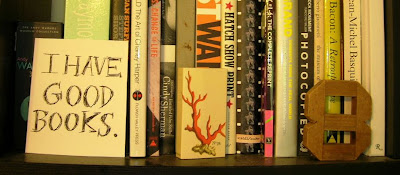 Just finished watching the movie version of this book and I feel a little nauseous. I mean holy shit. This is a portrait of the depths of human misery, of a lonely old woman's addiction to diet pills, fueled by an obsession with being on television, and her junkie son, who's convinced that if he can acquire a "pound of pure," all his troubles will be over. It does not end well.
Just finished watching the movie version of this book and I feel a little nauseous. I mean holy shit. This is a portrait of the depths of human misery, of a lonely old woman's addiction to diet pills, fueled by an obsession with being on television, and her junkie son, who's convinced that if he can acquire a "pound of pure," all his troubles will be over. It does not end well.I got really into Hubert Selby, Jr.'s work during my freshman year of college--it may have started after I saw this movie the first time, actually. I'd also just started college in Brooklyn, the setting of all of these books, which might have piqued my interest as well. I read Last Exit to Brooklyn and Song of the Silent Snow, although I strangely have no actual recollection of reading Requiem for a Dream (though I know that I did). I wonder how it would hold up for me if I read it again now.
I recall that Selby's punctuation was unorthodox, though consistent, something that didn't exactly bother me though I didn't quite understand the point of it. He used forward slashes instead of apostrophes, eschewed quotation marks altogether, and often neglected to indent paragraphs, simply dropping them to the next line. Now that I look it up, it seems that he preferred forward slashes to apostrophes because they were just a little bit closer on his typewriter, which kind of paints a picture of someone furiously typing, trying to get out the story as fast as possible before it's gone. Which I kind of like.

I watched this movie last Friday... when it ended both my roommate and I felt like we had just gotten off of a rollercoaster. We didn't know what we had just seen... we questioned the existence of life and the meaning of having a God. It was crazy.
ReplyDeleteAnd I loved it.
As soon as my shift is over at the Library I'm going upstairs to find Last Exit To Brooklyn. I find it mildly appropriate that I'm also doing a presentation on Nan Goldin.
It's the world that is so close, but so far away, that is most fascinating.